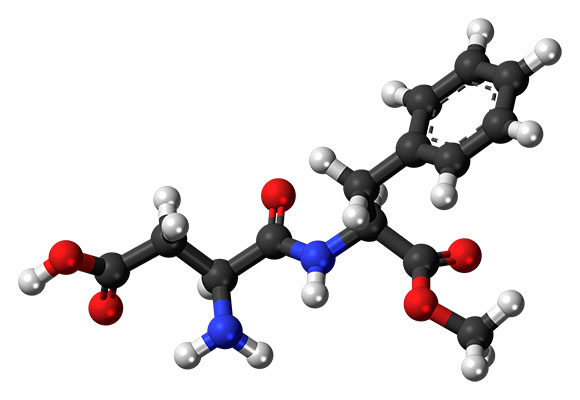Research has shown that the artificial sweetener Aspartame is highly dangerous to humans, and even causes brain damage, a famous nutritionist has reported.
A newly published study with rats investigated the chronic effect of aspartame on oxidative stress in the brain; researchers found that there was a significant increase in lipid peroxidation levels, superoxide dismutase activity, GPx levels and CAT activity, showing that chronic exposure of aspartame resulted in detectable methanol in the blood, which may be responsible for the generation of oxidative stress in the brain.

According to the Dr. Mercola website, more than 90 countries have given the artificial sweetener aspartame the green light to be used in thousands of food and beverage products.
Two hundred times sweeter than sugar, aspartame allows food manufacturers to produce sweet foods they can market as “low calorie,” “diet,” or sugar-free,” appealing to hundreds of millions of consumers looking to cut sugar from their diets.
No doubt about it, the less sugar you include in your diet, the better. But replacing sugar with aspartame is not the solution, and in fact is likely to be even worse for your health.
Despite assurances from the U.S. Food and Drug Administration (FDA) and other public health agencies that aspartame is safe, the research says otherwise.
Virtually all of the marketing material emphasizes the fact that aspartame is natural and made of two amino acids, the building blocks of protein. But, like many deceptions, this is only partially true. While there are two amino acids that comprise 90% of aspartame, aspartic acid and phenylalanine, they are held together in a methyl ester bond that comprises 10% of the molecule.
The methanol is released from the aspartame within hours of consumption after hydrolysis of the methyl group of the dipeptide by chymotrypsin in the small intestine. Once this methyl ester bond is broken it liberates free methyl alcohol or methanol, which is commonly called wood alcohol. The problem with methanol is that it passes into your blood-brain barrier and is converted into formaldehyde, which causes the damage. You may recognize formaldehyde as embalming fluid.
Interestingly, methanol is only toxic in humans. All other animals are able to detoxify it before it causes damage.
Methanol is a toxin that destroys the myelin tissue in your body, which is the insulating material around your nerves that allows nerve signals to travel properly. Once injured, one can have what are called demyelinating symptoms that are commonly seen in diseases like MS and also migraines that can include bizarre and inconsistent visual field disruptions.
Methanol breaks down into formic acid and formaldehyde in your body. Many experts believe formic acid is the problem but the real problem is the formaldehyde, which is a deadly neurotoxin and carcinogen. An EPA assessment of methanol states that methanol “is considered a cumulative poison due to the low rate of excretion once it is absorbed. In the body, methanol is oxidized to formaldehyde and formic acid; both of these metabolites are toxic.”




